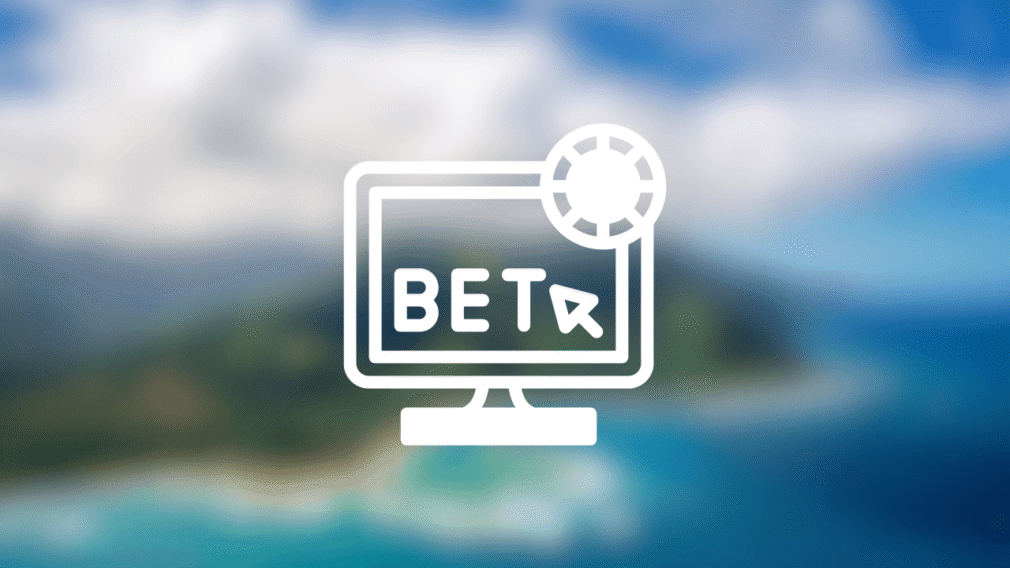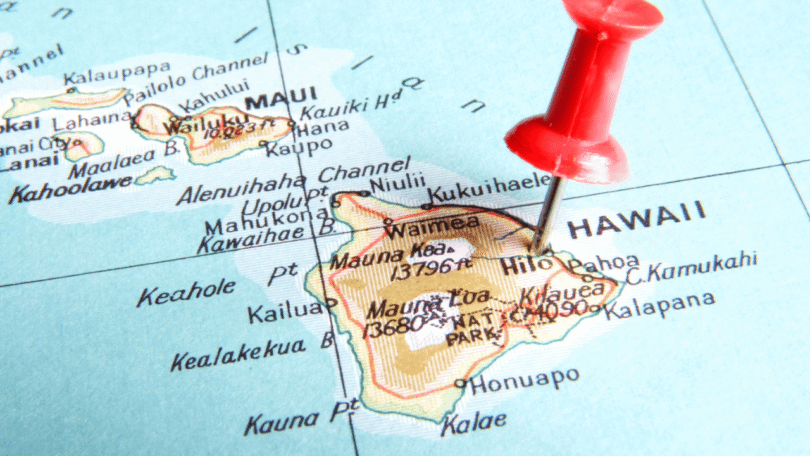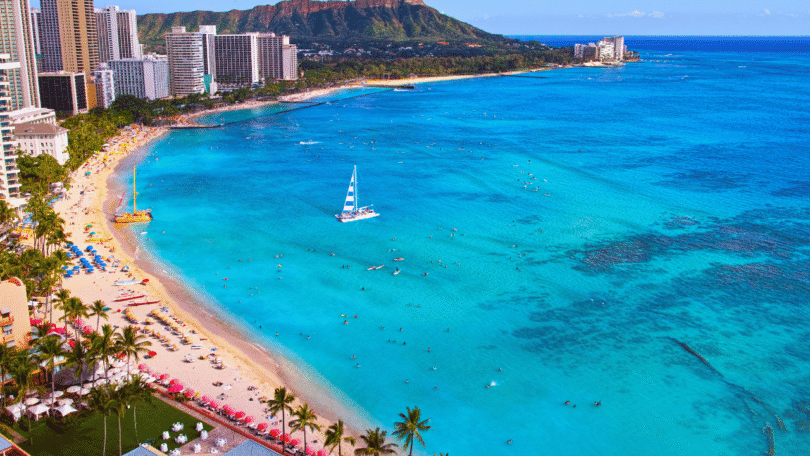Is Sports Betting Legal in Hawaii? Everything You Need to Know
Hawaii remains one of two U.S. states, alongside Utah, where all forms of gambling, including sports betting, are illegal. Yet, 2025 saw a bold push for change with House Bill 1308, which nearly legalized mobile sports betting before stalling. For now, some residents turn to risky offshore sites, navigating a gray zone.

Hawaii’s gambling landscape is starkly unique. In Aloha State ports betting is illegal, part of a constitutional ban on all gambling, from casinos to lotteries. This makes Hawaii and Utah the only U.S. states without any legal wagering options.
The state’s stance is deeply cultural, prioritizing community well-being over economic gain. Despite this, illegal betting thrives underground, fueling calls for regulation. In 2025, House Bill 1308 (HB 1308) brought hope for legal mobile betting, but its failure leaves residents with offshore sites as the only outlet.
Hawaii’s Deep-Rooted Gambling Ban
Hawaii’s gambling ban is woven into its constitution, reflecting a cultural and historical aversion to wagering. Native Hawaiian values like aloha (love, gratitude) and pono (righteousness) clash with gambling’s perceived risks to community harmony.
This stance traces back to the 1850 Kingdom of Hawaii Penal Code, influenced by Protestant missionaries who imposed puritanical morals. Gambling was deemed a vice, alongside other “immoral” acts, a legacy that endures in modern laws. Placing a bet is a misdemeanor, though individual bettors are rarely prosecuted.
The Department of Law Enforcement and Attorney General’s office enforce these rules rigorously. In 2024, they issued cease-and-desist orders to illegal online operators.
Unlike most states, Hawaii lacks casinos, lotteries, or tribal gaming, with even daily fantasy sports (DFS) banned since 2016. Legalization requires a constitutional amendment or public referendum, a steep challenge given historical resistance.
The 2025 Legislative Tide for Sports Betting
In 2025, Hawaii saw its closest brush with legal sports betting. House Bill 1308 (HB 1308), introduced in January, aimed to legalize mobile sports betting and DFS, with a proposed start date of July 1, 2025. It gained unprecedented traction, passing the House Economic Development and Technology Committee (35-15) in March and Senate committees in April.
The bill, backed by Representative Daniel Holt, sought to fund public services like education and infrastructure while regulating illegal betting. Oversight was assigned to the Department of Law Enforcement, with safeguards like a youth betting ban. If passed, Hawaii would have been the 40th state to legalize sports betting.

But HB 1308 faltered by May 1, 2025. Disputes over tax rates (10% proposed, versus 15-20% suggested by groups like the Sports Betting Alliance) and licensing fees ($250,000 deemed too low) stalled progress. The shift from the Department of Business, Economic Development, and Tourism to Law Enforcement as regulator sparked further debate.
Opponents, including Senators Lorraine Inouye and Sharon Moriwaki, cited addiction risks and family burdens. The Attorney General, Honolulu Police, and prosecutors echoed concerns about crime and vulnerable communities. Despite Governor Josh Green’s willingness to sign, the bill missed a final vote, ending the session. Its progress, however, signals potential for 2026.
Recent Developments in Hawaii Sports Betting
[April 28, 2025]: Hawaii Misses Golden Chance to Legalize Sports Betting This Year
[April 23, 2025]: Hawaii Governor Signals Support for Sports Betting Bill
[April 14, 2025]: Hawaii’s Sports Betting Bill Hits Snag as House Rejects Senate Plan
Navigating the Offshore Betting Mirage
With no legal options, some Hawaiians bet on offshore sites like Bovada or BetOnline, drawn by their wide sports markets and mobile access. Representative Holt notes that betting already happens via these platforms or local bookies, but without consumer protections.
These sites operate outside U.S. jurisdiction, creating serious risks:
-
Legal Violations: Offshore betting breaks state law, though individuals face little prosecution risk.
-
Payment Issues: Delays, withheld winnings, or high wagering requirements are common, with no legal recourse.
-
Data Breaches: No U.S. data protections expose users to fraud or identity theft.
-
Unfair Odds: Unaudited odds may disadvantage bettors, unlike regulated platforms.
-
No Safeguards: Lack of dispute resolution or responsible gambling tools heightens addiction risks.
In 2024, Hawaii’s Attorney General targeted offshore operators with cease-and-desist orders, reinforcing the ban. Social sportsbooks like Thrillzz or Fliff offer sweepstakes-based gaming as safer alternatives, but they aren’t true betting platforms. Caution is essential in this unregulated space.
Weighing the Economic Promise Against Social Costs
Hawaii’s gambling ban sacrifices revenue other states harness. Nevada’s $1.9 billion betting handle in February 2025 dwarfs Hawaii’s zero, missing funds for schools or infrastructure. A 2023 study estimated illegal gambling generates tens of millions annually, untaxed and unregulated.
Legalization could yield $10–20 million in yearly tax revenue, per early HB 1308 estimates, supporting education or the Aloha Stadium rebuild. It could create jobs in tech and regulation, keeping dollars in-state rather than fueling Las Vegas, dubbed the “Ninth Island” for Hawaiian visitors. Governor Green sees potential in retaining local spending.

Yet, social concerns loom large. Senators Inouye and Moriwaki warn of addiction, financial ruin, and family strain, with the National Council on Problem Gambling (NCPG) noting 2-3% of Americans face gambling issues. The Attorney General and Honolulu Police fear crime, fraud, and exploitation, especially in vulnerable communities.
Native Hawaiian perspectives vary. Leaders like Tyler Gomes view gambling as economic empowerment, akin to Native American tribal gaming, but cultural values like ʻohana (family) often frame it as predatory. The Hawaii State Commission on the Status of Women warned a proposed Kapolei casino could exacerbate human trafficking and domestic violence, particularly for Native Hawaiian women in poverty.
Staying Responsible in a Non-Betting Paradise
Even in a gambling-free state, some residents bet offshore, necessitating responsible practices. Without regulated platforms, the risks of addiction or financial loss are amplified, making caution critical.
Practical tips include:
-
Set Budgets: Use only disposable income, treating betting as entertainment, not income.
-
Avoid Chasing Losses: Don’t raise bets to recover losses, which can spiral.
-
Take Breaks: Pause every 30–60 minutes to stay clear-headed.
-
Understand Odds: Know probabilities to set realistic expectations.
-
Healthy Coping: Use exercise or family time, not betting, to manage stress.
Support is available, though state-specific programs are scarce due to the ban. The National Problem Gambling Helpline (1-800-GAMBLER, www.ncpgambling.org) offers 24/7 assistance. The Hawaii Coalition Against Legalized Gambling, while anti-legalization, can guide to resources. Awareness and restraint are key until legal options emerge.
The Horizon for Sports Betting in Hawaii
Hawaii’s betting future is uncertain but hopeful. HB 1308’s 2025 progress, further than any prior gambling bill, suggests legalization could arrive by 2026 if reintroduced. An online-only model, like Tennessee’s, suits Hawaii’s lack of casinos, requiring no physical infrastructure.
Major operators like DraftKings or FanDuel would likely vie for licenses, with HB 1308 proposing at least four. Hawaii’s high-income residents and 3 million annual California visitors (where betting remains illegal until 2027) make it an attractive market. Trends like micro-betting (wagering on in-game moments) or esports could draw younger bettors, if regulated.
Yet, barriers persist. Legalization demands constitutional changes and public approval, a tall order given cultural resistance. Values like ʻohana and pono clash with gambling, and fears of crime, addiction, and exploitation, especially for Native Hawaiian communities, fuel opposition. Las Vegas lobbying and the lack of a gaming commission complicate matters.
Still, the $10–20 million in potential tax revenue and job creation keep the debate alive. Legalization could regulate the millions flowing to offshore sites, protecting consumers and funding public good. Hawaii’s path forward balances tradition with economic promise.
Is sports betting legal in Hawaii in 2025?
No, all gambling, including sports betting, is illegal as of June 2025.
What betting options exist in Hawaii?
Only illegal offshore sites like Bovada or BetOnline, which carry significant risks.
Are there legal betting alternatives?
Social sportsbooks like Thrillzz or Fliff offer sweepstakes-based gaming, not true betting.
Why did HB 1308 fail in 2025?
Disputes over tax rates, licensing fees, and regulatory oversight stalled the bill.
Could sports betting be legal soon?
Possibly by 2026, if a new bill builds on HB 1308’s progress.
What risks come with offshore betting?
Legal violations, payment delays, data breaches, unfair odds, and no consumer protections.
Where can I get help for gambling issues?
Call 1-800-GAMBLER or visit www.ncpgambling.org for 24/7 support.
Recommended

